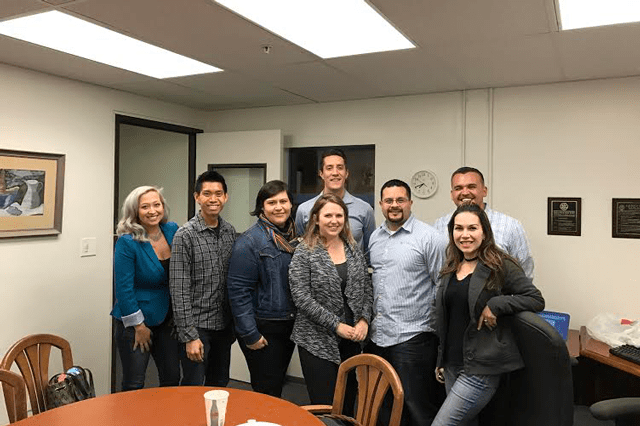A growing Millennial demographic and several other factors make one California city an ideal breeding ground for young Salvation Army supporters.
By Jared McKiernan –
What if young professionals could network and socialize all while fundraising and volunteering for a worthy cause in their communities? That’s what The Salvation Army had in mind when it developed Echelon, “the young adult auxiliary”—probably best described as the Millennial counterpart to the Advisory Boards run in communities across the country.
The Echelon model began to take shape in 2010 when The Salvation Army National Advisory Board (NAB) discovered that the average age of a U.S. donor was well over 65. Eventually, they’d need to reinforce their donor base with younger supporters, or they’d be in trouble. Now, according to Captain Keith Maynor, National Young Adult Secretary for The Salvation Army, the awareness of that reality is much higher, but there’s still work to do.
“I think at this point everyone senses that we do have a problem on the horizon, and that we really do need to strategize with that Millennial demographic,” he said.
Why Millennials? For one, they’re the fastest-growing share of today’s workforce. But perhaps more importantly, they respond best when offered a multitude of ways to engage in a cause, as noted in the 2014 Millennial Impact Report. In fact, they regard donating their skills and time to a cause as equivalent to monetary giving. The problem in many communities is the dearth of opportunities for them to do so.
Joey Zumaya lives in Ventura, California, a quick trek up from LinkedIn’s west coast offices, where he heads up the government sales unit. He sees his city as a prime example.
Aside from LinkedIn—recently acquired by Microsoft—Patagonia, a sustainable clothing company, has become one of the city’s largest employers, while Trade Desk, a growing digital advertising firm, has also set up shop in the area. And the region is quietly birthing a host of new businesses, thanks in part to a public-private start-up incubator.
“The way I see [Ventura] is you have your middle-class families, the homeless, then right in the middle, you have this growing demographic of young professionals that work for companies like LinkedIn and Trade Desk and Patagonia,” Zumaya said. “So you have all these companies that are finding their way, but really, if you look at the competitive landscape with regard to outlets for young professionals that serve the community, it’s almost zero.”
The good news: Zumaya and an eager group of like-minded individuals are already working to change that, and Zumaya himself is uniquely positioned to get the ball rolling.
“As far as I know, I’m the only combo soldier, board chairman, and Corps Sergeant Major in The Salvation Army,” he said.
He started attending the Ventura Corps several years ago, where he and his family have since grown deeply involved. Then, about a year ago, he took the reins as chairman of the local Salvation Army Advisory Board. Around that time, he flew to Phoenix, Arizona, for The Salvation Army National Advisory Organizations Conference, which piqued his interest in Echelon. When he got home, he wanted to learn more—How does it work? What goes into crafting the bylaws? How many people do you need? So he did the only thing that made sense: he logged into LinkedIn.
“I contacted the president of every Echelon chapter that I could talk to through LinkedIn—St. Louis and Phoenix and San Francisco—and basically just asked, ‘Hey, what are you doing?’ And you, and you, and so on.”
He’s since assembled a steering committee with a few trusted pros, some of them his colleagues at LinkedIn. And now, they’re well on their way to becoming a distinguished chapter.
“[Lt. Colonel] Kyle Smith [Southern California Divisional Commander] told me they were trying to find the right city to host a chapter, and I said, ‘Well, we’re kind of already doing that.’”
Some of the issues that typically plague fledgling chapters—lack of board support, for instance—never really came into play since the board is also led by Zumaya. This has helped accelerate the movement in a big way.
This month, the emerging Ventura group will be promoting the upcoming chapter at a fundraising event. They’re targeting an official launch later this year, putting them in the company of a growing list of chapters that includes Birmingham, Chicago, Syracuse, San Francisco, San Diego, Portland, Phoenix, Peoria, St. Louis, Louisville, Milwaukee and Dallas.
“[Maynor] told us that the best Echelons that exist are the ones that happen organically,” Zumaya said. “It’s not something that you have to manufacture. It’s hard to describe, but it’s been so special coming together without much effort, so you feel like it’s just meant to be…This group can do some crazy things.”

Listen to this article
You May Also Like
Robert James Stillwell | May 15, 1928 – Nov. 30, 2020
Lifelong Salvationist Dr
2 minute read
January 7, 2021










